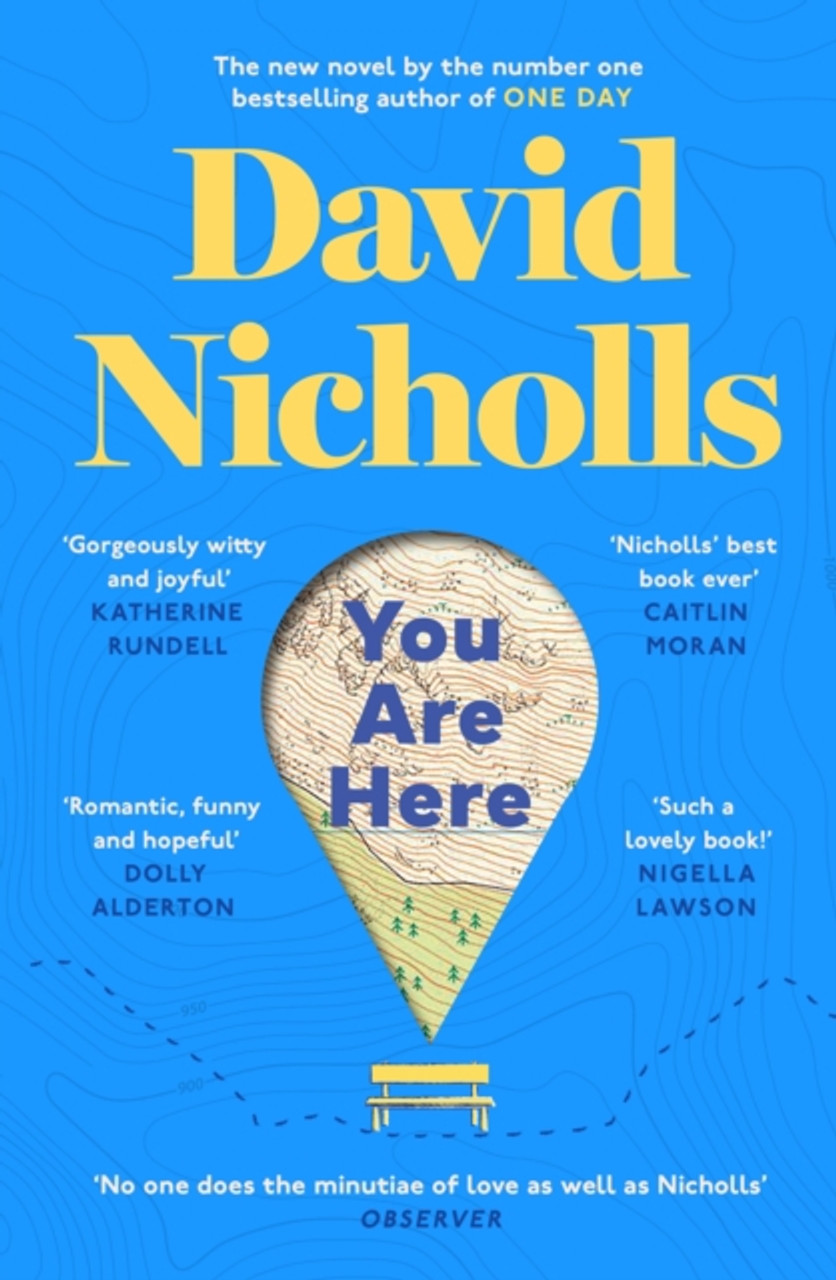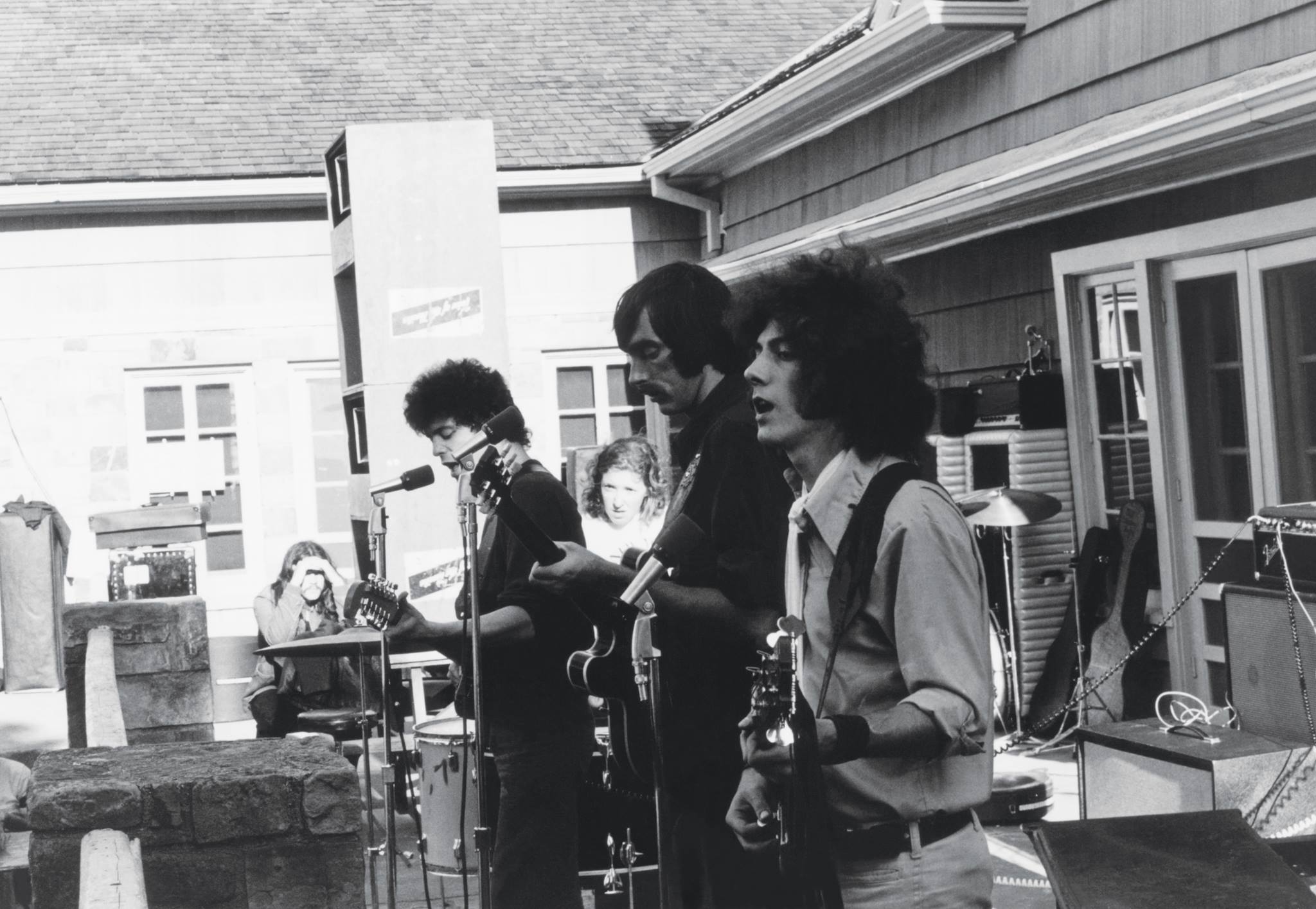- Culture
- 06 Jun 24
David Nicholls on his latest book You Are Here: "I wanted it to be about how invigorating and inspiring friendship and company can be"

With his mega-selling novel One Day recently adapted into a Netflix smash, David Nicholls talks exploring middle age love in new book You Are Here, working with Tom Hanks, and his love of Cocteau Twins and The Velvet Underground.
Having risen to fame on the back of his bestselling 2009 novel One Day – subsequently made into a successful film, and just this year again adapted into a Netflix hit – English novelist David Nicholls’ new book, You Are Here, explores the knotty subject of middle-aged love and relationships.
Two divorcees, geography teacher Michael Bradshaw and book editor Marnie Walsh, meet on a coast-to-coast group hike across the northern English countryside. Thus, the scene is set for a will-they-won’t-they comedic tale, underpinned with a real sense of emotion and pathos.
Even as someone who wouldn’t normally gravitate to such material, I found You Are Here quite riveting, with Nicholls’ sharply detailed characterisation and flair for humour proving irresistible. One of the most compelling aspects of the story is the way it details how Michael and Marnie, having undergone a period of self-imposed exile from socialising – reinforced by the pandemic – decide to step back on the merry-go-round of dating.
It’s a scenario that will resonate with many – the post-heartbreak moment when you know you simply have to get back on the horse and re-engage with the outside world. Of course, we do so in the knowledge more emotional turmoil is possible, if not probable. Given their age and experience, Michael and Marnie are acutely aware of the risk, which the novel emphasises.
“I haven’t been on a date for 27 years, so it’s been a long time,” says the softly spoken Nicholls, on a fine spring morning in Dublin’s brand new Leinster Hotel. “But I still have those terrible trace memories of how hard it is, and that difficult business of presenting yourself, and trying to be on-form and amusing and so on. It’s hard work. Lots of my friends are in that situation and it’s terribly difficult.
“Even though I don’t have first hand experience of what it means to date now, I definitely remember that anxiety, and the labour involved in presenting yourself to a potential partner. At the same time, I wanted it to be about how invigorating and inspiring friendship and company can be. I didn’t want to come down too hard on one side or the other.”

Straight from the off, One Day is an attention grabber, with the opening chapter outlining Michael and Marnie’s loneliness with uncommon insight and empathy.
“It’s something that’s in all the books in one way or another,” notes Nicholls. “It’s important not to be too grim about it as well. The origins of this book are in lockdown, when a lot of people had the experience of being boxed in with too many others, or on the other hand, extreme loneliness. I wanted to write about that, and what it’s like to get out of the habit of communicating with others – people who’ve become a little phobic about communication and contact, and how they get over that.
“In a romantic comedy, often being by yourself is the worst possible thing that can happen. I wanted to push against that a little. Even though Marnie is not in a great place at the beginning of the book, she has found a way to live and she’s fine. It’s not, ‘Oh my god, this character must find a person otherwise it’s all a disaster’ – it’s more ambiguous than that.”
UNDER-EXPLORED AREA
Middle age relationships are possibly an under-explored area in storytelling, and for obvious reason – youthful romance is a far more glamorous subject.
“I’m quite a bit older than the characters now, almost 20 years older than Marnie,” considers Nicholls. “I know a lot of people around that age who are by themselves, and can’t quite face what’s absent. There’s maybe an element of tension to it, a sense of time passing. I didn’t do any research, but I’ve had lots of conversations with friends who find themselves in that situation at that age. They’re unsure about whether they’re going to have a family, unsure about the future.
“But at the same time, I didn’t want it to be a horror story about that. I find it very hard to write about the dating scene of twenty-somethings – that experience now is so different to anything I ever went through. I would be completely at sea. There are a lot of fantastic young authors writing about what that’s like, in terms of negotiating relationships, sex and dating, and doing that really well. But I guess I can recall the insecurities of being in your thirties and forties, and wondering what life’s going to bring.”
Does Nicholls consider himself a social person generally?
“I used to be really social,” he replies. “In my twenties, I couldn’t bear being by myself. As I’ve gotten older, I’m much more calm about it. I went to a lovely party last night and stayed too late, but it does make me a little nervous. I’m not completely at ease. I definitely have to warm up, rehearse and concentrate, it’s never just chilled out and relaxed! I have friends I love to be around, but more and more I’ve found – maybe it’s being a parent – that time by myself is kind of precious as well.”
One Day, Nicholls’ breakthrough novel, had a fascinating and clever premise. Having introduced us to the characters Emma and Dexter – who spend the night together after meeting at their university graduation, then go their separate ways – the story then revisits them on the date they met, July 15, over a 20-year period. Ultimately, the book became an enormous word of mouth success, while Nicholls, who started out as an actor, also enjoyed a parallel career as a screenwriter.
Was he always keen to move into film and TV?
“I’d actually been writing a lot for television and then suddenly that stalled,” he recalls. “I wrote on Cold Feet, but I was a hired gun. That was a big break and I suddenly had four hours of produced television, which led to my own scripts being taken up and produced. But then that kind of stopped – it’s very hard to maintain that career for any length of time.”
That’s a surprise – you’d imagine getting started is half the battle.
“In television, fashions change and there are a lot of writers coming up all the time,” says David. “It used to be that your way into TV writing was through BBC shows like Doctors or ITV shows like The Bill. Or you’d write for the storyline department of Coronation Street. A lot of those opportunities have closed down now, it’s much harder to get that break. I was very lucky to be working as a script editor, which gave me access to producers, so there were people I could put my work in front of. That’s always the hardest bit.
“But yeah, it’s very hard to keep going, the nature of TV has changed. There are these big blockbuster shows, which have very well paid showrunners, working in a kind of producer role. I don’t think I could ever do that now. I’m not sure how I’d break into it now without those staging posts of script editing and script reading.”
Directed by Lone Scherfig, the film version of One Day arrived in 2011 and featured Hollywood superstar Anne Hathaway as Emma. Has his success as a writer afforded Nicholls the opportunity to meet any artistic heroes?
 The Velvet Undergound.
The Velvet Undergound.SPECTACULAR SOUNDTRACK
“It has,” he nods. “I get to work with amazing actors, writers and directors. I get very nervous around them and always regret not spending more time with them. The film of my first book was produced by Tom Hanks, and it’s amazing to sit in a room with him and get script notes, and listen to him tell stories. At the same time, a little part of me wants to run away because I find it very nerve wracking.
“I mumble and don’t say what I want to say, I panic a little bit. The occasional brushes I have with that are really exciting, and I’m grateful for them, but I always screw up! Well, I feel like I screwed up, which is not the same thing, but there you go.”
With Nicholls being a huge music fan, the acclaimed Netflix adaptation of One Day boasts a spectacular soundtrack, with tunes from the likes of New Order, the Pixies, Frankie Knuckles, Orange Juice, Nico and The Charlatans to name just a handful.
“We had a great music coordinator, a guy called Matt Biffa,” he explains. “He did things like Sex Education and I May Destroy You, it’s an amazing list of credits. We very much wanted Matt to do it, and we talked a lot about music that would reflect Emma and Dexter’s taste, particularly Emma. Also, we talked about avoiding the cliches, so it doesn’t have to be the Spice Girls cos it’s 1996. It can be other things.
“Also, we spent a lot of time thinking about, ‘Well, you don’t just listen to the music from the year in which you were living.’ You listen to stuff from the past as well, so we got to dig into things like Nick Drake and Joan Armatrading.”
As he elaborates, ’80s indie is David’s special area of expertise.
“I love the idea that 16 year olds who’ve watched the show are all listening to Cocteau Twins, it’s great,” he enthuses. “That was my kind of stuff along with the likes of The Velvet Underground. Those were the artists I listened to and loved.”
• You Are Here is out now.
RELATED

- Lifestyle & Sports
- 11 Jan 24
Liam Brady: "Where I fell out with Jack was the way he kind of discarded me"

- Culture
- 13 Jul 23
WATCH: Then Jerico's Mark Shaw interviewed at Forever Young
RELATED

- Culture
- 12 Jun 23
Forever Young Festival 2023 - Tickets On Sale Now!

- Culture
- 16 May 23






